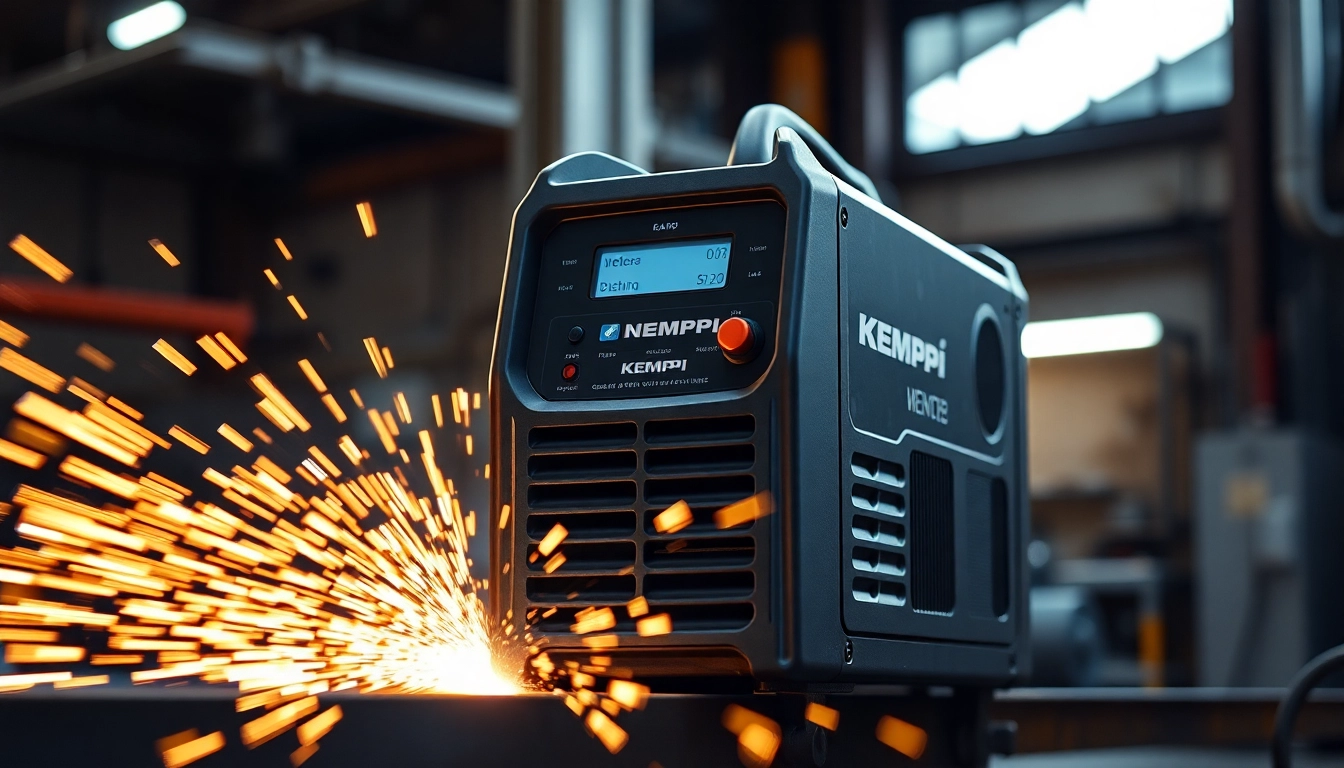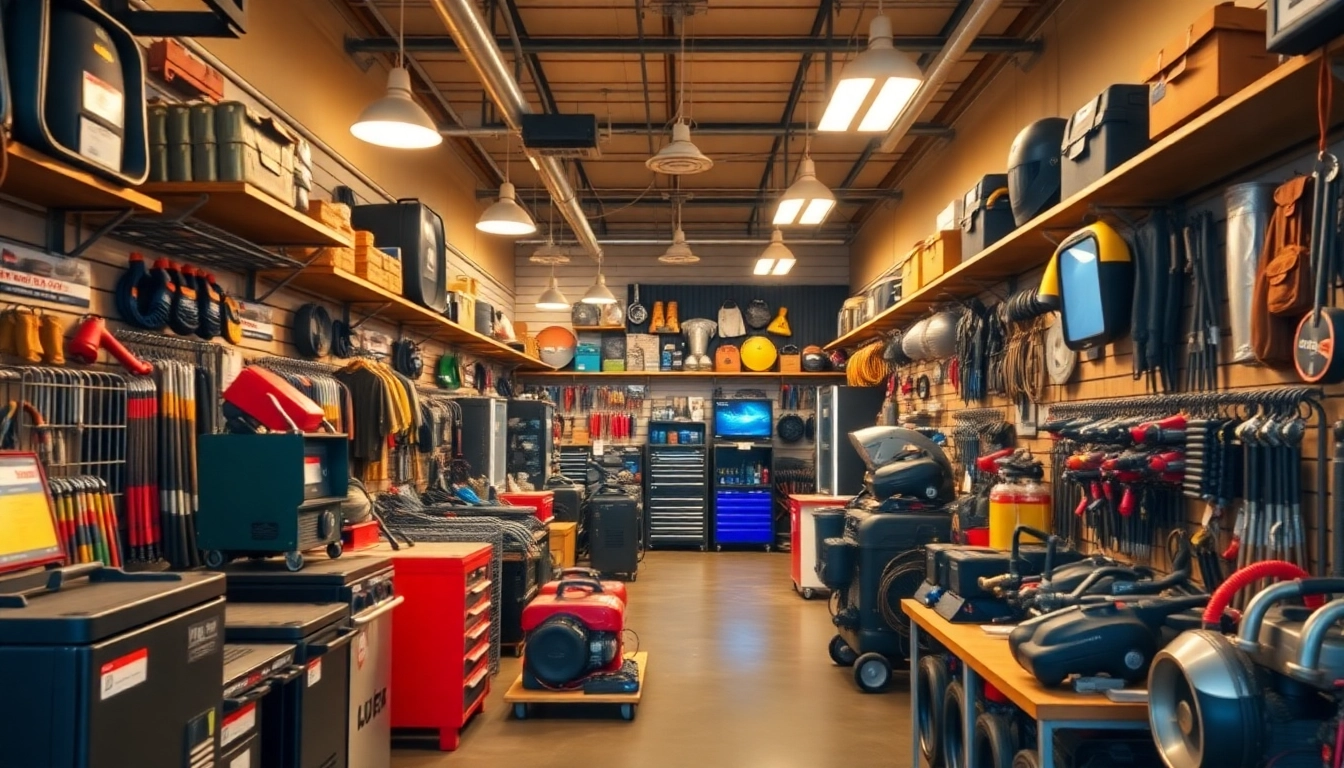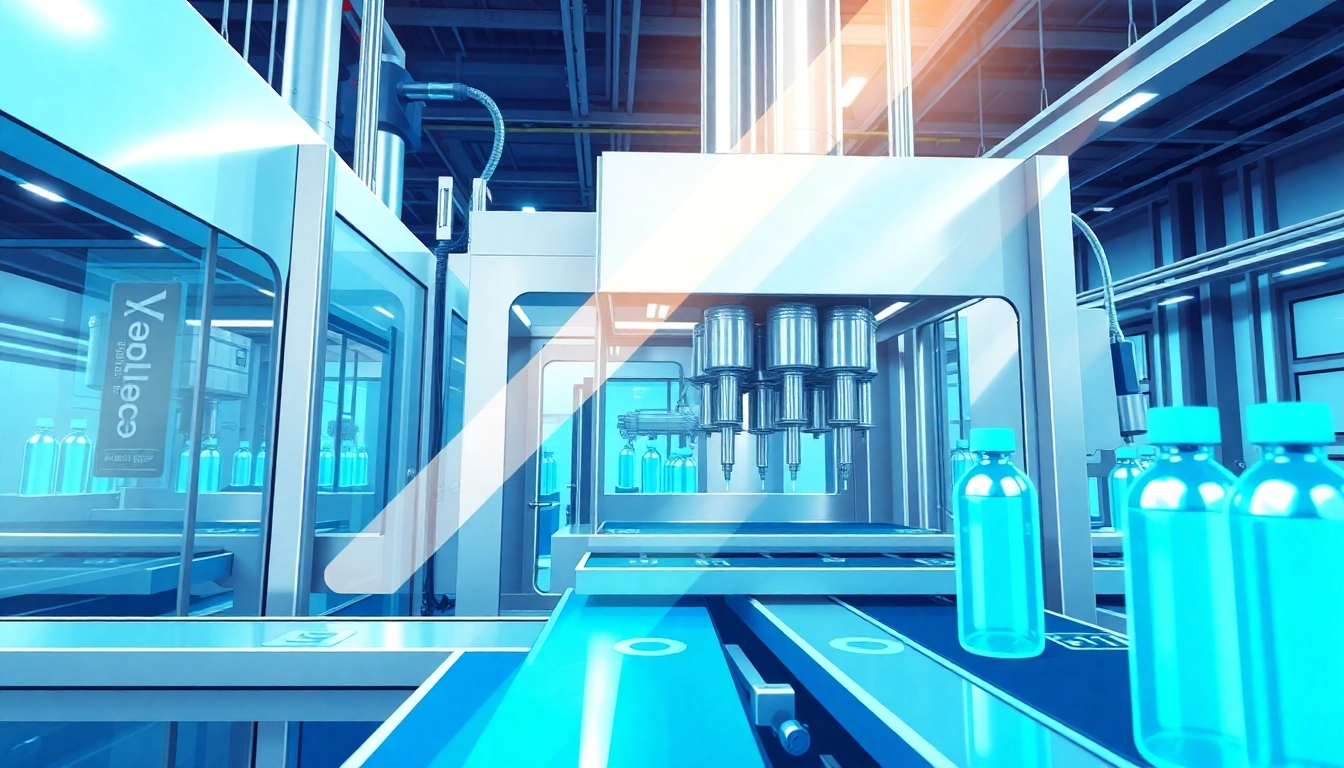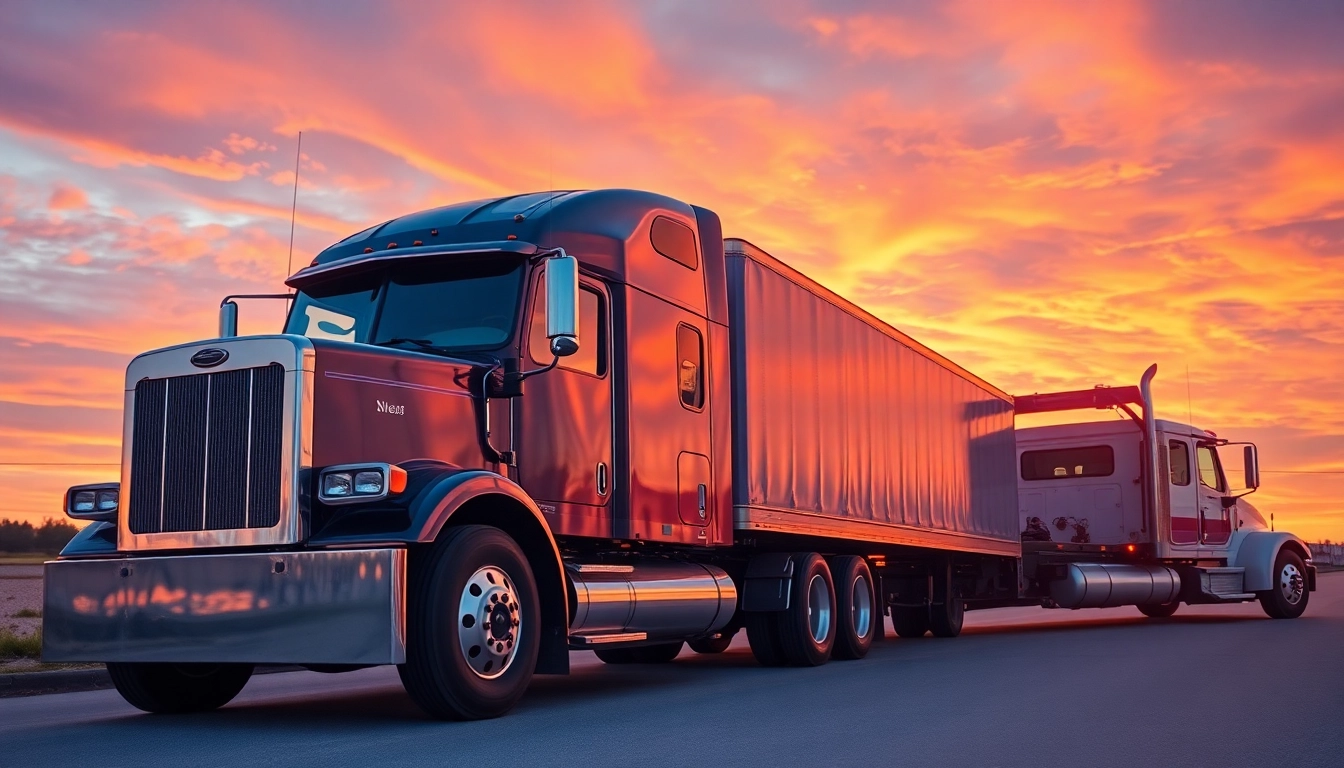Introduction to Kemppi Welders
A name synonymous with quality in the welding industry, kemppi welders have established significant market recognition for their innovations and performance. As industries continue to evolve with technological advancements, the demand for reliable welding solutions becomes increasingly critical. In this context, Kemppi stands out as a pioneering brand, specializing in welding equipment that combines high efficiency with user-friendly functionality. This article offers a comprehensive overview of Kemppi welders, delving into their unique attributes, types, features, applications, and tips for selecting the right model for your needs.
What Makes Kemppi Welders Stand Out?
Kemppi welders are distinctive for several reasons. First and foremost is their progressive approach to welding technology. The brand is well-known for integrating cutting-edge features within their products, such as advanced digital control systems and high-performance arc characteristics. This innovation ensures precision and productivity for users ranging from hobbyists to professional welders.
Another key attribute is the comprehensive customer support and service network that Kemppi maintains. This level of dedication ensures users receive essential advice and assistance, contributing to overall satisfaction. Furthermore, Kemppi’s commitment to research and development positions it at the forefront of the welding technology curve, continuously improving the features and capabilities of their equipment.
History and Development of Kemppi Technology
Founded in 1949 in Finland, Kemppi Group Oy has undergone a remarkable evolution. Initially focusing on welding electrodes, Kemppi has since expanded its offerings to encompass a wide variety of welding machines, including MIG, TIG, and multi-process welders. The journey is marked by significant innovations, starting with the introduction of the first electric arc welding machine, which paved the way for a diverse product lineup catering to multiple industries.
Throughout its history, the company has emphasized the importance of sustainable business practices, investing in environmentally friendly technologies and processes. The result is a holistic approach that not only enhances performance but also reduces the ecological footprint of welding operations.
The Global Presence of Kemppi Welders
Kemppi has successfully established a substantial global footprint, with representatives and distributors spanning across continents. This international presence allows them to cater to a widespread customer base, extending from construction and automotive industries to shipbuilding and manufacturing. The brand is particularly well-regarded in Europe and Asia, where its products are synonymous with reliability and technological advancement.
Additionally, the development of production facilities in strategically selected locations, such as Lahti in Finland and Chennai in India, underscores the company’s commitment to continuous improvement and responsive service to its global clients. With a focus on localizing manufacturing processes, Kemppi not only enhances efficiency but also ensures that they meet the specific requirements of diverse markets.
Understanding Different Types of Kemppi Welders
Understanding the various types of Kemppi welders is crucial for selecting the right machine for your specific applications. Each type offers unique advantages, catering to varying welding techniques and industry standards. This section provides insights into the primary categories of Kemppi welders.
MIG Welders: Efficiency and Precision
MIG (Metal Inert Gas) welding is renowned for its speed and economical operation. Kemppi’s MIG welders come equipped with advanced wire feeding mechanisms and superior arc stability, allowing users to achieve exceptional results even on complex projects. The Master M series, for example, is designed for demanding applications while ensuring ease of use and high-quality welds.
In practical terms, employing a Kemppi MIG welder can significantly reduce the time and resources required for welding tasks. Automatic settings help manage various parameters, making them suitable for beginners and experts alike. Furthermore, the presence of integrated software ensures precision and control, offering users a complete welding solution from start to finish.
TIG Welders: When Detail Matters
TIG (Tungsten Inert Gas) welding is essential for applications requiring high detail and precision, such as in aerospace and artistic metalwork. Kemppi’s TIG welders, like the MinarcTig series, excel in delivering clean, aesthetically pleasing welds, making them a favorite among professionals who prioritize detail and quality.
One of the standout features of Kemppi TIG welders is their ability to operate on varying materials, including stainless steel, aluminum, and alloys. With advanced controls, users can adjust the heat input and welding speed, further enhancing the quality of the weld. This versatility, combined with reliable performance, makes Kemppi TIG welders invaluable in specialized tasks.
Multi-Process Welders: Versatility in Action
Multi-process welders are designed to accommodate various welding methods, making them ideal for workshops that handle multiple types of projects. Kemppi’s multi-process machines allow users to switch between MIG, TIG, and MMA (Manual Metal Arc) welding with ease, offering a comprehensive solution for diverse applications.
The ability to adapt to different welding requirements without the need for multiple machines is a significant advantage. These welders often come with advanced features that ensure high arc stability and consistency, even when changing processes. For businesses aiming to maximize output while minimizing investment in equipment, Kemppi’s multi-process welders are an effective choice.
Key Features to Look for in Kemppi Welders
When selecting a Kemppi welder, several key features should be considered to ensure optimal performance and suitability for your projects. Understanding these features can greatly impact productivity and the quality of your work.
Advanced Welding Technology and Innovation
Kemppi places significant emphasis on innovation in its welding technology. Look for features such as adaptive arc response, which adjusts welding parameters in real-time for optimal performance. Additionally, many Kemppi welders come equipped with advanced digital interfaces, allowing for precise control and monitoring of welding processes.
These innovations not only enhance user experience but also lead to improved welding outcomes. Features like automatic settings and advanced algorithms help minimize the risk of errors, particularly in high-stakes environments where precision is critical.
User-Friendly Interfaces and Control Systems
A user-friendly interface is vital for both new and experienced welders. Kemppi’s welders often feature intuitive control panels that simplify adjustments and settings. Clear displays and easy navigation make operating the machines straightforward, enabling users to focus more on the quality of their work rather than the technology itself.
Additionally, many models include programmable settings that allow users to save configurations for specific tasks, thus enhancing efficiency and consistency in repetitive projects. This aspect is particularly beneficial in high-production environments where time and accuracy are paramount.
Durability and Maintenance of Kemppi Welders
Durability is a crucial consideration in any welding operation. Kemppi welders are designed to withstand tough working environments, with robust construction that ensures longevity. Materials used in their fabrication are chosen not only for performance but also for their ability to resist wear and tear.
Moreover, maintenance is simplified through thoughtful design, allowing easy access to critical components for servicing or replacement. Routine maintenance practices are essential to keep welders in peak condition, directly impacting performance and reducing downtime in production.
How to Choose the Right Kemppi Welder for Your Needs
Selecting the right Kemppi welder involves evaluating your specific requirements and understanding your options. Here are some actionable steps to guide your decision-making process.
Assessing Your Welding Projects and Applications
Start by assessing the types of welding projects you will undertake. Consider the materials, thicknesses, and required welding techniques. For instance, if you primarily work with thin materials, a TIG welder might be more suitable, whereas heavier applications may benefit from a MIG machine.
Additionally, think about the environments in which you’ll be working. If welding in various locations or under diverse conditions, multi-process welders offer the flexibility to adapt to different demands seamlessly.
Budget Considerations for Purchasing Kemppi Welders
Establishing a budget is vital before making a purchase. Kemppi offers a range of welders with varying price points, ensuring options for both hobbyists and professionals. Balance your financial constraints with the features most critical to your operations, aiming for a machine that delivers the best ROI based on long-term use.
Consider additional costs such as maintenance, consumables, and potential training when calculating your budget. Investing in quality upfront can lead to lower overall costs in the long run, as efficient machines often require less frequent repairs and replacements.
Comparing Models and Their Specifications
Once you have a clear idea of your needs and budget, compare different Kemppi models. Look for specifications that align with your requirements, such as power output, duty cycle, and the inclusion of advanced features. Customer reviews and testimonials can also provide insight into real-world performance and reliability.
Take advantage of any demos or trial periods offered by dealers to gain hands-on experience. This practical approach can help reinforce your decision, ensuring you select a welder that best meets your specific needs and preferences.
Real-World Applications of Kemppi Welders
Understanding how Kemppi welders perform in real-world applications can help potential buyers visualize their effectiveness. This section discusses notable case studies, problem-solving applications, and customer testimonials that highlight Kemppi’s proficiency in various sectors.
Case Studies: Successful Uses in Industries
Many industries have benefited from Kemppi welders’ advanced capabilities. For instance, in the automotive sector, manufacturers often rely on Kemppi welders for their automation solutions, which enhance production efficiency while ensuring uniformity in quality. One case study involves a major automotive manufacturer that integrated Kemppi’s automatic welding systems into their assembly line, resulting in a 30% increase in production speed while maintaining stringent quality standards.
Another case occurred within the shipbuilding industry, where a company opted for Kemppi’s multi-process welders to handle diverse welding requirements on various vessel components. The result not only streamlined their processes but also reduced the time spent on reworking previously poor welds, thanks to higher accuracy of the machines.
Alleviating Common Welding Problems with Kemppi Solutions
Common challenges in welding include inconsistent heat distribution, poor arc stability, and excessive spatter. Kemppi addresses these issues through their advanced technological designs. Users frequently report improved performance regarding arc stability when utilizing Kemppi welders, which translates to fewer defects and less time spent on cleanup and corrections.
The innovative features integrated into Kemppi machines, such as Intelligent Arc technology and adjustable settings for different materials and environments, empower welders to achieve better outcomes and reduce the likelihood of complications in their work.
Customer Testimonials on Kemppi Welders
Feedback from users plays a crucial role in understanding a product’s effectiveness. Many customers report high satisfaction with their Kemppi welders, often highlighting the ease of use, reliability, and quality of the welds produced. One customer remarked, “Switching to Kemppi has completely transformed our welding operations. We see better results in less time.”
Such testimonials underscore the brand’s commitment to quality and user experience, reinforcing the notion that investing in a Kemppi welder can lead to significant returns in performance and productivity.




